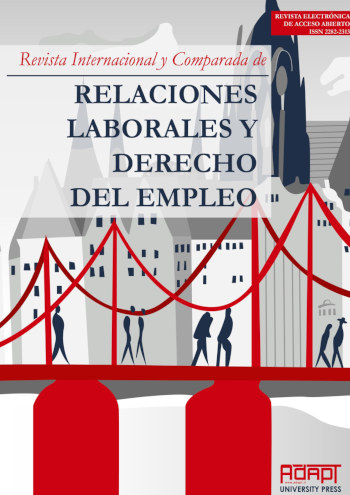Resumen
Desde hace décadas se viene manteniendo que el Derecho del Trabajo sufre una profunda crisis que pone en cuestión sus fundamentos básicos o que al menos implica un cambio respecto a los presupuestos sobre los que se construyó a principios del siglo XX. En este trabajo se analizan las funciones que históricamente ha desempeñado el derecho laboral y posteriormente se reflexiona sobre los cambios producidos a partir de los años 70 y sus consecuencias sobre las relaciones laborales. En este contexto, se defiende que las funciones históricas del Derecho del Trabajo siguen estando plenamente vigentes, pero que es necesario redefinir las estrategias de regulación para realizar efectivamente estas finalidades en el mundo actual. En este sentido, se identifica la “búsqueda de la flexibilidad” que ha animado las “reformas laborales” en los países del capitalismo avanzado como una estrategia disfuncional.
It has been maintained for decades that Labour Law faces a deep crisis that calls into question its basic foundations. At least it is considered that there have been important changes regarding the premises on which Labour Law was built at the beginning of the 20th Century. This paper analyses the role that Labour Law has historically played and then it reflects on the transformations that have been taken place since the 70s and the impact of these modifications on Labour Relations. In that context, it is argued that the historical functions of Labour Law are still fully valid. Nevertheless, it is necessary to redefine the regulatory strategies to effectively fulfil these purposes in today’s world. In that vein, the search for ‘flexibility’ that has inspired the ‘labour reforms’ all over the globe is characterized as a dysfunctional strategy.

